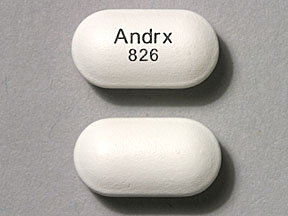
Naproxen Sodium ER Coupons & Savings Card – Discount Prices from $100.34
Generic for: Naprelan
Naproxen, a nonsteroidal anti-inflammatory drug (NSAID), is designed to alleviate pain and reduce inflammation. It is particularly effective for conditions such as rheumatoid arthritis, osteoarthritis, ankylosing spondylitis, tendonitis, bursitis, and gout attacks. This medication works by inhibiting specific proteins, known as cyclooxygenases (COX), which are responsible for causing inflammation, pain, and swelling in the body.
Available as an extended-release (ER) tablet, Naproxen is typically taken once daily. While it is effective in managing long-term conditions like arthritis, it is not recommended for immediate pain relief, such as during acute gout attacks, due to its slower absorption. Patients are advised to discuss non-drug treatment options and other medications with their healthcare provider for chronic conditions.
Common side effects may include headache, indigestion, and flu-like symptoms. Always consult with a healthcare professional before starting any new medication to ensure it is safe and appropriate for your specific health needs.
Our coupons are free to use. Before paying, show the pharmacist your Naproxen Sodium ER savings card to get your free discount. Use our filters below to edit the prescription box to match your needs. The Naproxen Sodium ER prices will update based on your prescription needs. Above our Naproxen Sodium ER coupons, you can change your location to see pharmacy prices and costs in other areas. We're here to help you buy Naproxen Sodium ER at the lowest price with our prescription discount card.
My prescription
Edit
500MG, Naproxen Sodium ER (20 Tablet Extended Release 24 Hours)
Select pharmacy

CVS
$149.25
COUPON PRICE
Walgreens
$100.34
COUPON PRICE
Albertsons
$180.25
COUPON PRICE
Walmart
$339.33
COUPON PRICENaproxen Sodium ER savings card
Show this card to your pharmacist
Walgreens
$100.34
BIN
ID
PCN
GRP
011867
LH5B41D483
HT
LABH001
Powered by
Naproxen, a nonsteroidal anti-inflammatory drug (NSAID), is designed to alleviate pain and reduce inflammation. It is particularly effective for conditions such as rheumatoid arthritis, osteoarthritis, ankylosing spondylitis, tendonitis, bursitis, and gout attacks. This medication works by inhibiting specific proteins, known as cyclooxygenases (COX), which are responsible for causing inflammation, pain, and swelling in the body.
Available as an extended-release (ER) tablet, Naproxen is typically taken once daily. While it is effective in managing long-term conditions like arthritis, it is not recommended for immediate pain relief, such as during acute gout attacks, due to its slower absorption. Patients are advised to discuss non-drug treatment options and other medications with their healthcare provider for chronic conditions.
Common side effects may include headache, indigestion, and flu-like symptoms. Always consult with a healthcare professional before starting any new medication to ensure it is safe and appropriate for your specific health needs.
Our coupons are free to use. Before paying, show the pharmacist your Naproxen Sodium ER savings card to get your free discount. Use our filters below to edit the prescription box to match your needs. The Naproxen Sodium ER prices will update based on your prescription needs. Above our Naproxen Sodium ER coupons, you can change your location to see pharmacy prices and costs in other areas. We're here to help you buy Naproxen Sodium ER at the lowest price with our prescription discount card.
More prescriptions for rheumatoid arthritis
coupons from$19.83Save 80%
coupons from$983.22Save 62%
coupons from$186.58Save 49%
coupons from$12.96Save 73%
coupons from$9.65Save 78%
coupons from$7.84Save 63%
coupons from$54.44Save 39%
coupons from$2.15Save 96%
More prescriptions for rheumatoid arthritis
Dexamethasone Intensol Save 80%coupons from $19.83
Enbrel Save 62%coupons from $983.22
Tolectin 600 Save 49%coupons from $186.58
Sulindac Save 73%coupons from $12.96
Ft Arthritis Pain Save 78%coupons from $9.65
Aspirin Save 63%coupons from $7.84
Cortef Save 39%coupons from $54.44
Decadron Save 96%coupons from $2.15
Naproxen Sodium ER dosage forms
Use our Naproxen Sodium ER 375MG coupon with prices from $84.97 for 20 Tablet Extended Release 24 Hours. You can also use our Naproxen Sodium ER 375MG coupon with prices from $394.86 for 100 Tablet Extended Release 24 Hours. We have a Naproxen Sodium ER 500MG coupon with prices from $149.25 for 20 Tablet Extended Release 24 Hours. You can use our Naproxen Sodium ER 500MG coupon with prices from $509.36 for 75 Tablet Extended Release 24 Hours.
Dosage Quantity Price from Per unit 375MG 20 Tablet Extended Release 24 Hours $84.97 $4.25 375MG 100 Tablet Extended Release 24 Hours $394.86 $3.95 500MG 20 Tablet Extended Release 24 Hours $149.25 $7.46 500MG 75 Tablet Extended Release 24 Hours $509.36 $6.79 750MG 30 Tablet Extended Release 24 Hours $140.65 $4.69
| Dosage | Quantity | Price from | Per unit |
|---|---|---|---|
| 375MG | 20 Tablet Extended Release 24 Hours | $84.97 | $4.25 |
| 375MG | 100 Tablet Extended Release 24 Hours | $394.86 | $3.95 |
| 500MG | 20 Tablet Extended Release 24 Hours | $149.25 | $7.46 |
| 500MG | 75 Tablet Extended Release 24 Hours | $509.36 | $6.79 |
| 750MG | 30 Tablet Extended Release 24 Hours | $140.65 | $4.69 |
